Overtourism. Aren’t we hearing the term a bit too often lately? What is the meaning of overtourism? Let me explain by sharing a story with you. As a child, I remember my parents took me to my uncle’s place in Rajasthan (India) to spend the winter holidays. My cousin from the US visited the place too along with his family. Because all of us bombarded the place with our presence at the same time, there weren’t enough beds in the rooms to accommodate everybody at night. So my uncle used to order extra mattresses for his sons (four of them!) who placed them on the terrace and slept on them. We, however, enjoyed the warmth of their rooms, sleeping on furnished beds. To summarize, we overcrowded the place as guests and forced the hosts out of their rooms, putting them in a state of discomfort for a few days. Since we were family to them, they never complained. But when you do the same as a traveller – overcrowding a country and making the lives of the locals difficult, creating conflicts with them, then that’s called overtourism. In this blog, I’ll be discussing the overall impacts of overtourism and effective overtourism solutions that can bring about a positive change in the travel industry.
Environmental Impacts Of Overtourism
Before discussing the overtourism solutions, let’s discuss the impacts of overtourism. Overtourism has both environmental and socio-cultural impacts. Speaking of the environmental impacts of overtourism, they are as follows :
1. Depletion Of Groundwater Resources And The Problem Of Water Scarcity
Since tourism is a seasonal entity, when the peak season coincides with the period of water scarcity in that area, then it can place a lot of pressure on the groundwater table. The pipeline for water supply to the local public and the hotels is the same. And since preference is given to the tourists, the locals have to contend with reduced water supply.

Take Thailand’s Phi Phi islands for example. The Phi Phi islands are suffering from a major drinking water crisis thanks to the large influx of tourists coming to enjoy the “beach life” during the summers.
Shimla, a beautiful hill station in Himachal Pradesh, India has suffered the same fate too. The place has officially run out of drinking water. In fact, the conditions here are so bad that the government, instead of seeking solutions to overtourism, has requested tourists to not visit the place and consider other destinations for their travels.
2. Marine Pollution And Degradation Of The Marine Ecosystem
All the seaside and beach destinations fall victim to this. More tourists during peak season implies more non-biodegradable waste produced. 90% of the coastal places lack a sophisticated waste disposal system that can effectively treat large quantities of these wastes. As a result, these wastes are released into the ocean.
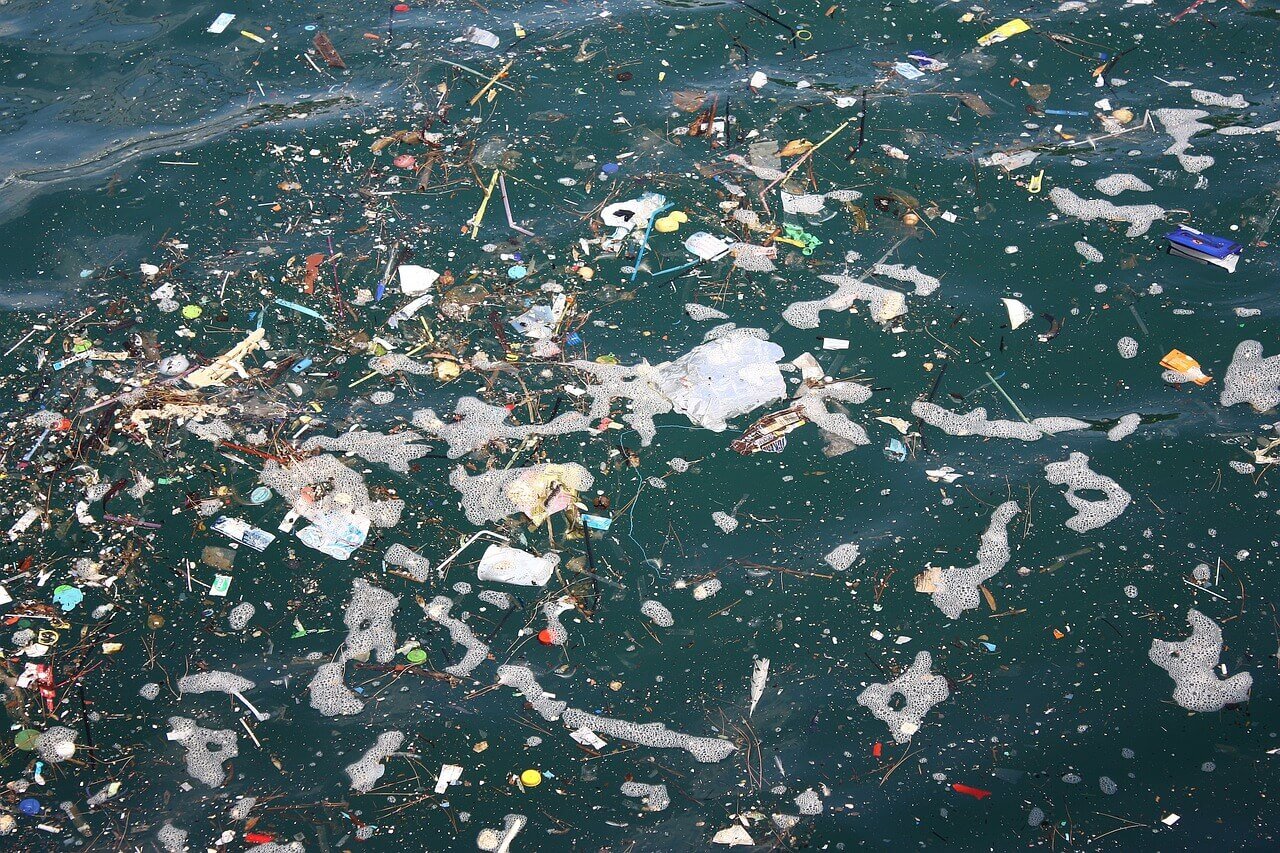
The polluted water from the hotels, plastic litter at the beaches and copious amount of chemicals (thanks to sunscreen lotions) – all of it contributes to a significant amount of oceanic water pollution. This phenomenon damages the marine ecosystem by destroying the coral reefs and killing innumerable species of fish.
Water quality of the Mediterranean Sea is deteriorating each day as we speak. Tourists travelling to Turkey, France, Egypt, Italy and Spain are major contributors to the monstrous-level of water pollution that’s taking place in this region.
Not only does it have a direct impact where the marine ecosystem is dying but it also has an indirect impact where the people consuming the fish caught in the Mediterranean are unknowingly ingesting microplastics with them, posing a grave threat to their health.
Maya Bay in Thailand was a place I was excited to visit on my Thai trip. But I couldn’t as it was shutdown thanks to the irreparable damage done to the marine ecosystem by the tourists.
3. Air Pollution And Increased Carbon Footprint
A steep increase in the number of travellers in the past decade has resulted in more aviation-related air pollution. More aeroplanes are being engaged on busy routes to accommodate the increasing number of travellers. Studies say that one single trans-Atlantic trip causes 1000 tons of Carbon dioxide emissions per passenger. Imagine what an ever-increasing number of tourists flying across the world are doing to our environment!
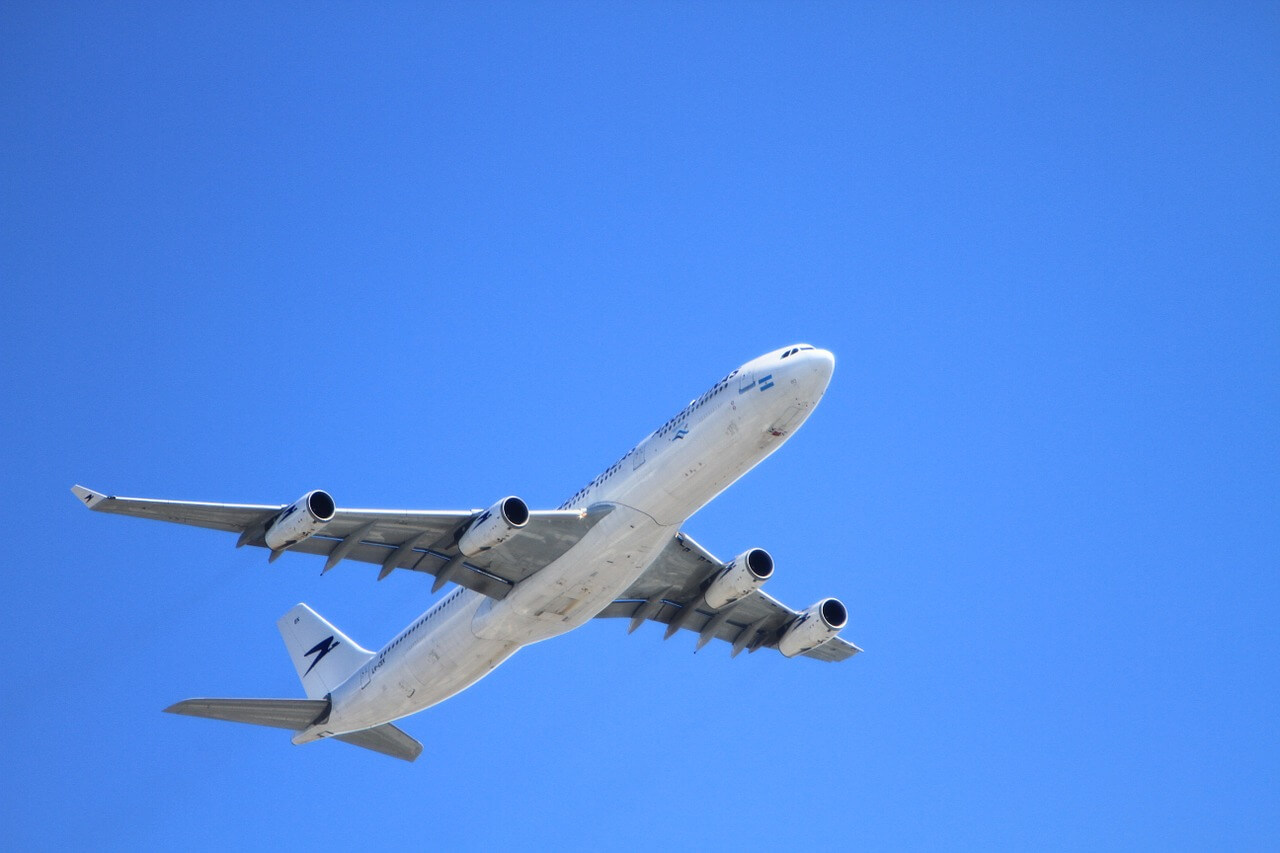
Since the planes fly in the higher atmosphere (stratosphere), the emissions containing carbon dioxide and chlorofluorocarbons are depleting the Ozone layer at a rapid rate. As a result, they accelerate global warming and climate change throughout the planet.
According to research, the carbon footprint resulting from tourism has increased from 3.9 to 4.5 gigatonnes of CO2 emissions between 2009-2013 alone. This accounts for 8% of the total greenhouse gas emissions. In other words, we’re killing the very planet that we desire to see.
Socio-Cultural Impacts Of Overtourism
Those were the environmental impacts of overtourism. Some of the socio-cultural impacts of overtourism are as follows:
1. Isolation Of Local Residents
In many places, the tourists are outnumbering the locals. Take Venice for example. A place that once had 1,20,000 residents is now home to just 55,000 residents thanks to rising housing rentals and dwindling employment opportunities. Overtourism has impacted Venice in such a way that locals are starting to doubt their existence in the city itself in the near future. The locals there are desperately seeking solutions to the overtourism problem.
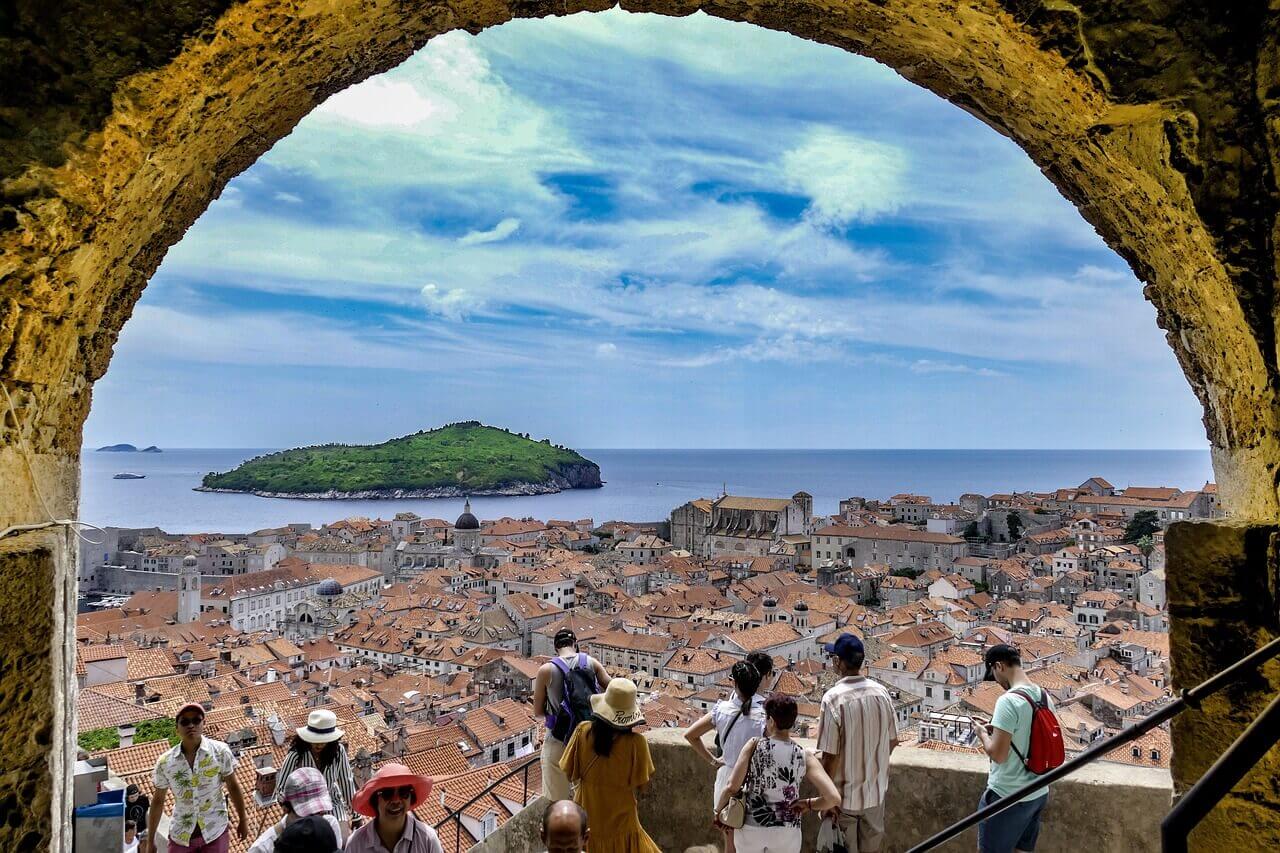
A similar negative impact of overtourism is seen in Dubrovnik, Croatia. The tourists outnumber the local population by such a huge margin that local shopkeepers have converted the pharmacies, bakeries and tailor shops into souvenir stores just to keep up with the tourist demands and earn a quick buck.
As a result, the needs and requirements of the locals are being ignored. The locals are feeling isolated because they’re being treated as outsiders in their own country. And that’s forcing them to shift elsewhere.
2. Increasing Demand For Short Term Rental Spaces
Increase in the rental pricing is driving local residents in European countries to pull their hair out. Since the number of Airbnb’s and holiday homes has gone up at an alarming rate, it has resulted in the scarcity of accommodation for the local residents.
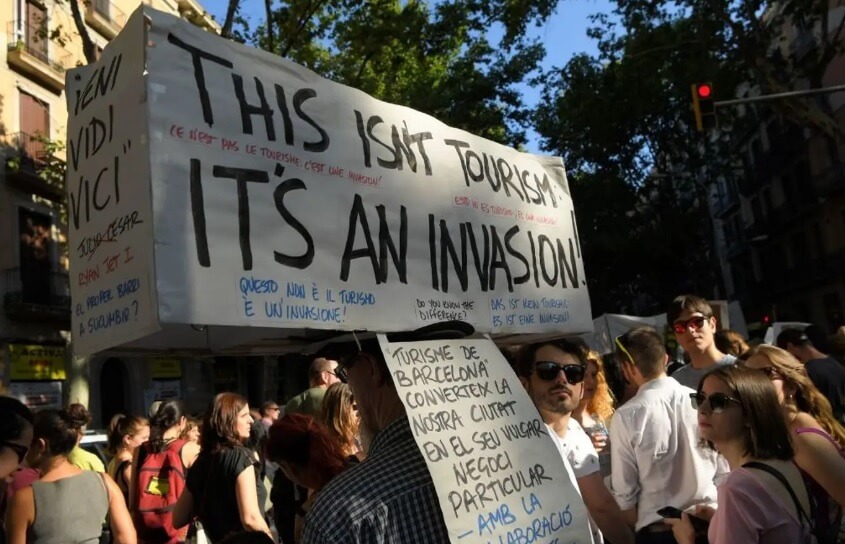
In fact, Barcelone is saying “No” to tourists altogether. Since travellers prefer local accommodations for short stays in their quest to explore the local culture, the landlords kick out the local tenants and convert their homes to holiday stays/AirBnb’s for more economical benefit. Locals aren’t able to find a place they can afford to live in. The situation has come to a point where the locals are getting into physical altercations with tourists to drive them out of their city.
3. Privatization Of The Destination And Increasing Cultural Divide Between Local Communities
Destinations which once had their own cultural flavour and a sense of pristine-ness to them are being crushed due to overtourism. Natural spots like beaches are being attached to private hotels, prohibiting entries of locals and only allowing access to tourists who pay for it. Locals are being forced to pay to visit places they once had free access to.
The societal fabric of these “holiday destinations” is being destroyed as a divide is being created with one side of people wanting to cash in on the tourist wave while the other side wanting to preserve the cultural sanctity of the place by not bowing down to the pressure from tourism.
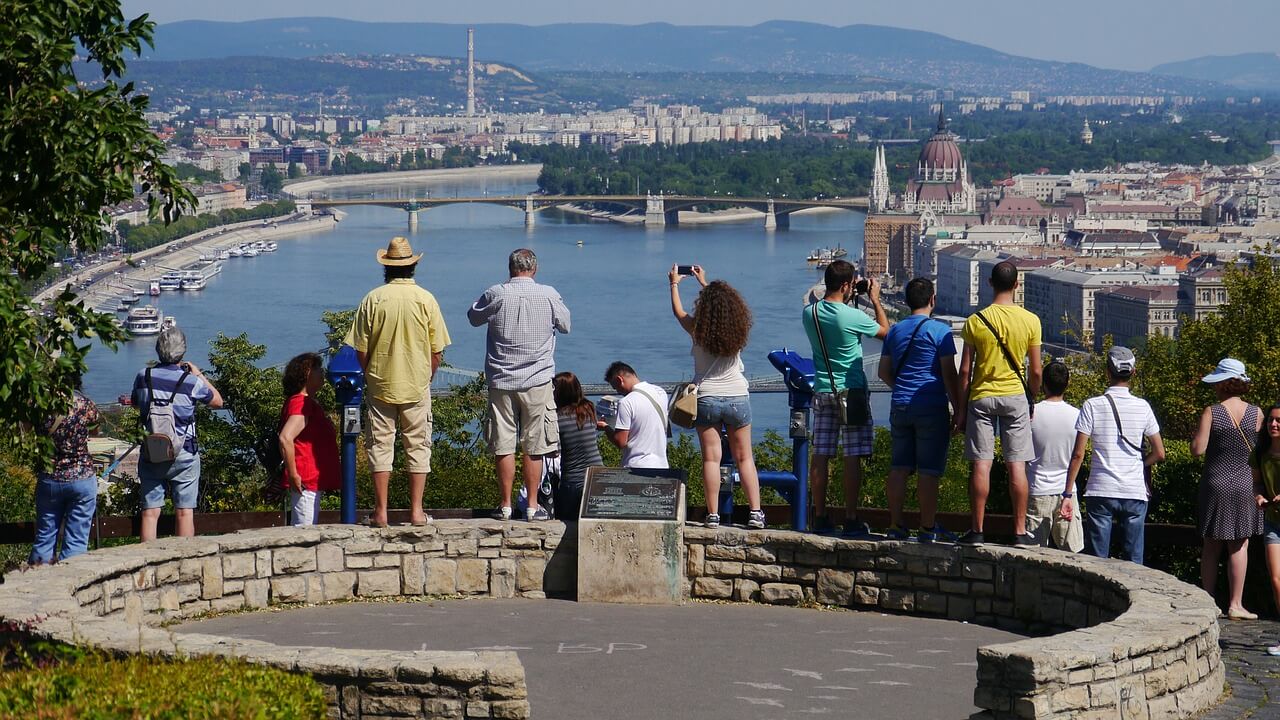
Budapest has been a major victim of overtourism – with the quality of local life falling beyond unacceptable levels. As a matter of fact, the deterioration in the quality of life of the locals has resulted in residents of Budapest resisting the entry of tourists into their territory altogether.
Overtourism Solutions – How You Can Be a Responsible Traveller
You can’t immediately fix the problem of overtourism but there are several ways in which you can reduce it by being a responsible and aware traveller. Here are the 7 overtourism solutions that can help you avoid overtourism:
1. Avoiding The Social Media Trap – Overtourism And Instagram
Let’s face it. Majority of the people don’t travel because they are messiahs of wanderlust. They travel to show the world that they can afford to travel. The high they get from flaunting their stylish travel photos on Instagram trumps their love for nature, history or even culture for that matter.
This desperation of people to seek validation in the form of likes and followers is a dangerous trend pushing the boundary of tourism beyond an acceptable limit. People just flock at popular tourist spots and stand in long queues just to get a picture clicked instead of enjoying the beauty that the place has to offer, all because the place is “instagrammable”.
I remember how disappointed I was on visiting the Lempuyang Temple in Bali, only to realise that in reality, it looks nothing like those magnificently photoshopped pictures on people’s Instagrams. To be honest, it looks pathetic.
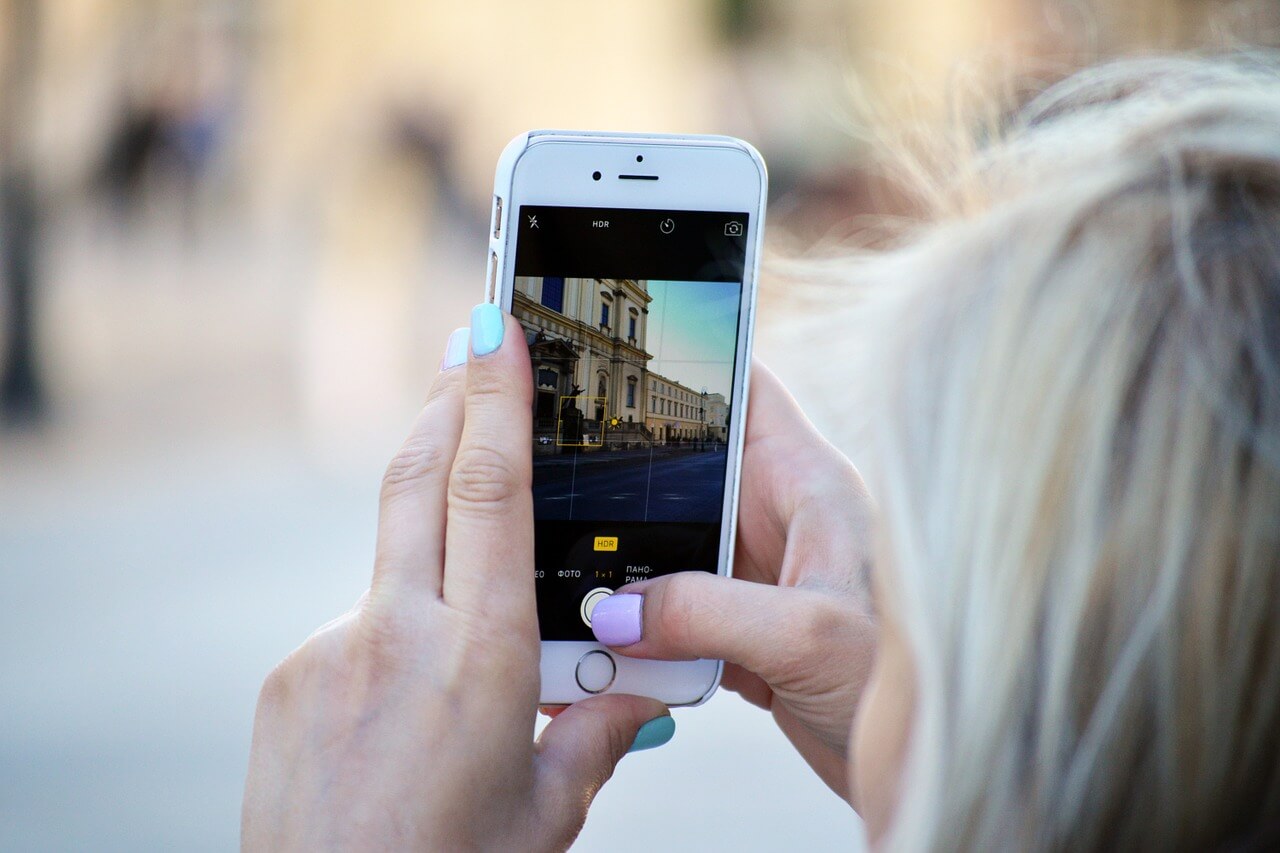
Instagram hashtags are proving detrimental to the sanctity of the “off the beaten path” spots as well. The pure, exclusive and untouched spots are now getting adulterated with hordes of regressive tourists who are only interested in that perfect picture. The probability of visiting a place is hinging on the number of instagrammable spots that the place has to offer.
A photo should be posted as a result of a happy experience or with the purpose of sharing a story. Just getting a photo shouldn’t be the sole purpose to visit a place.
Not all travellers and influencers are guilty of it and it’d be wrong to paint them all with the same brush but sadly, a majority of “travel-lovers” see it as a competition. A competition about who’s visited more countries, who’s stayed in the most expensive hotels, who’s had access to the most exclusive spots, etc.
There is no end to this rat-race. So if your self-esteem hinges on the number of stamps on your passport that you can flaunt to the world, then do yourself and the environment a favour and stop travelling. Travel for yourself and not to show the world.
2. Travel During Off Season And Shoulder Season
This is one of the best overtourism solutions as it divides the travelling crowd into manageable numbers throughout the year. It is much better than a situation where all the travellers bombard a country’s shores at the same time and overwhelm it’s resources.
It’s during the off-season and shoulder-season that economies of countries face a cash crunch. When you travel during these times, not only do you get to take advantage of heavy discounts on flights and hotels but you also contribute to a country’s economy when the people in the country actually need money.
It’s a win-win situation for both the host country and the tourists. Avoid visiting a place during big festivals or New Year’s eve because you wouldn’t want to ring in your new year while being crushed between a thousand people despite paying double the amount to visit the place.
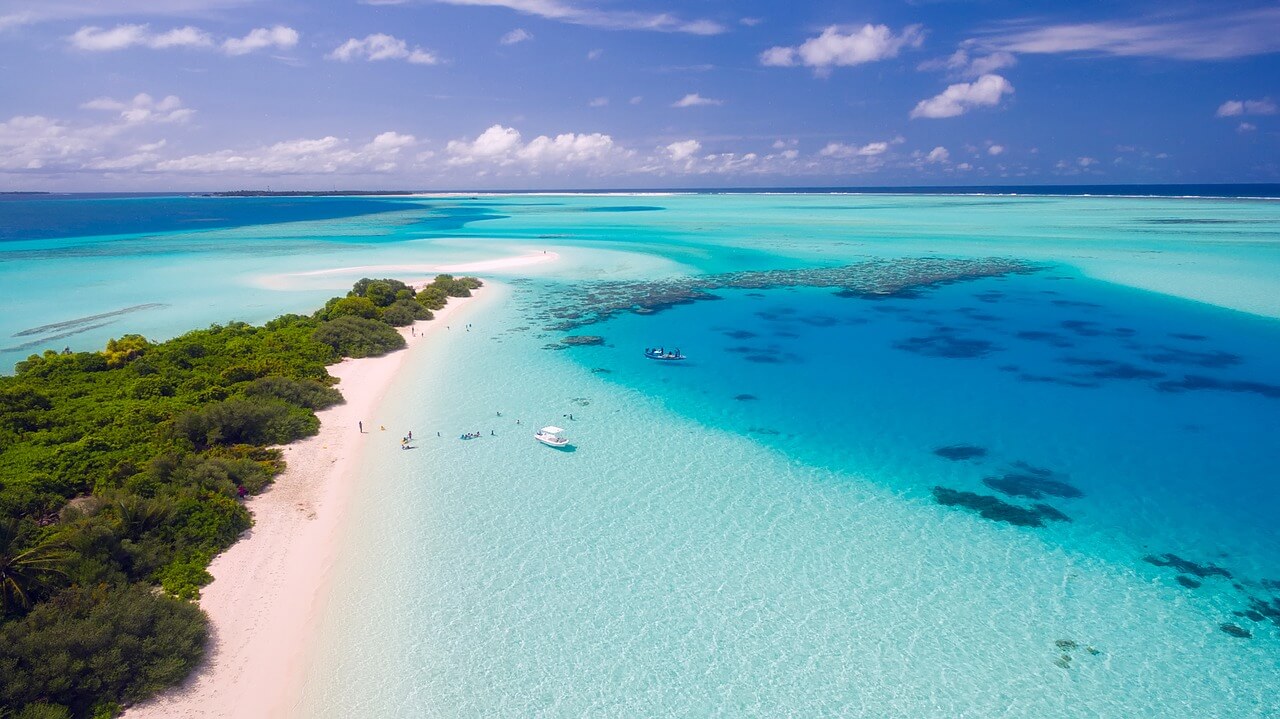
For example, visit the Maldives from May-end to August period as it’s off-season. Travel to Thailand between April-June or September-October as it’s off/shoulder season. Yes, you may have to contend with a bit of rain but it’s much better than finding a bazillion people on a supposed exclusive resort. After all, is it really worth waiting an hour just to get your favourite cocktail on the menu?
3. Support The Local Communities And Their Businesses
The thing with packaged tours and large tour groups is that they only take you to the mainstream spots and rush you through it. They don’t give you a qualitative travel experience where you get to spend time and explore the place at your own pace.
Also, with such travel agencies/companies, the money doesn’t trickle down to the local communities or benefit them in any way. So I’d rather you hire a private local guide. This way you get to see and experience the place from the eyes of a local.
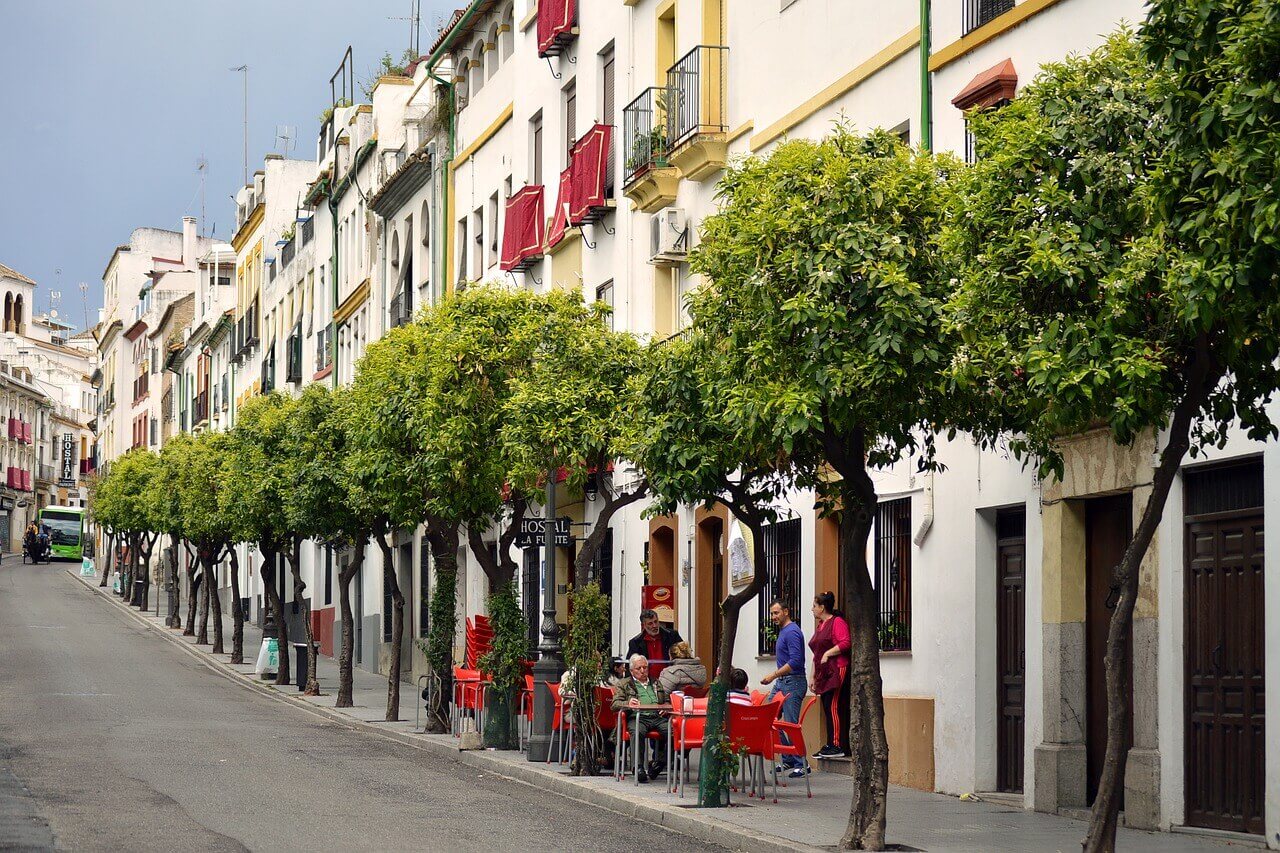
Eat at small, locally-owned cafes, bakeries and restaurants. This helps you get a taste of the authentic flavours of the place while simultaneously supporting the local economy.
Buy souvenirs and handicrafts – not from souvenir shops aka travel agency suggested tourist traps but from local vendors and artists. This way, you provide monetary support to their art & craft industries and help them sustain their local tradition and culture.
4. Travel Off The Beaten Track
Suppose you plan to visit Barcelona (Spain) for four days. Now instead of staying put and only roaming around the city, go on day trips to places around Barcelona as well. Explore places that are off the beaten path and less touristy like Montserrat and Tarragona. Visit the smaller neighbourhoods. Spend time in the countryside.
This reduces the pressure off Barcelona to host you for all the four days and also helps you get to see a side of Spain that not many have. It helps you avoid the crowds and enjoy a peaceful, stress-free vacation. Try exploring not just lesser-known places around popular cities, but also lesser-visited countries.
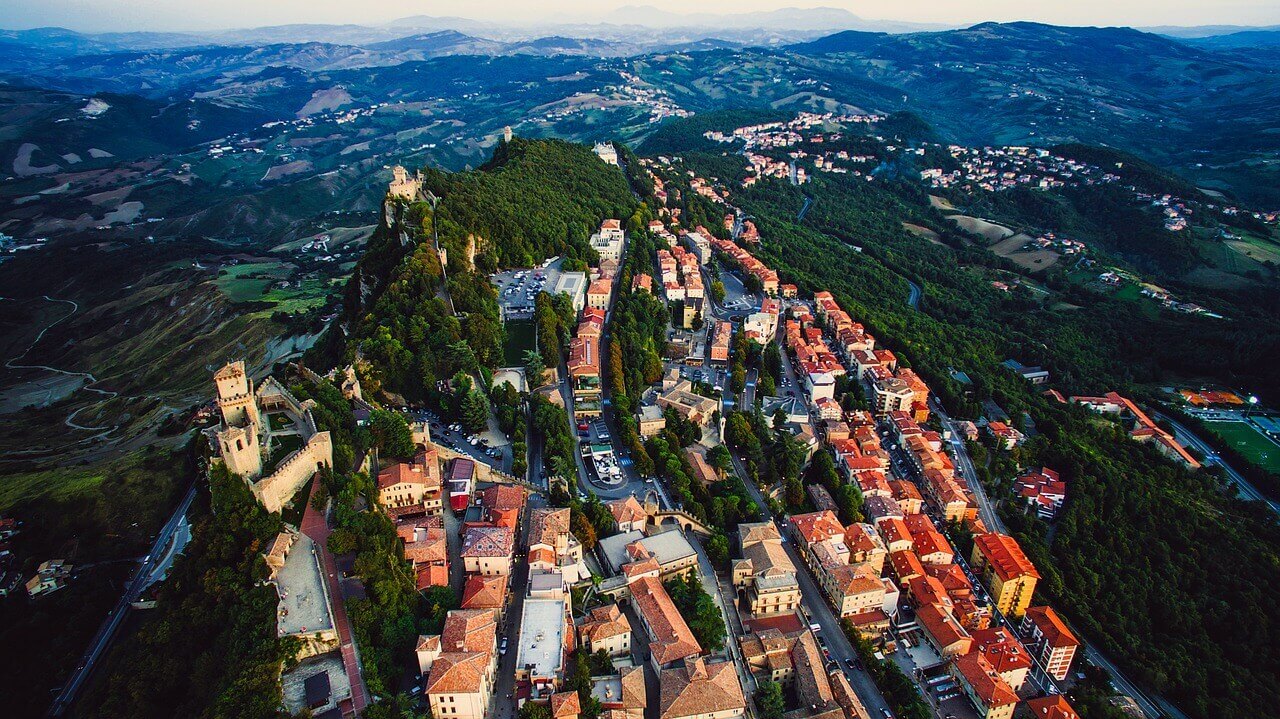
You’d be surprised to know there are many stunning countries that aren’t on an average traveller’s radar. Why just stick to popular countries that your travel agency is trying to sell to you?
Explore not only European mainstream biggies like Switzerland, Netherlands, France or Italy but also east-European offbeat countries like Georgia, Armenia and Azerbaijan. This is one of the most effective overtourism solutions that can help reduce the pressure on many countries that are unable to handle the number of visitors coming to their shores.
5. Respect The Local Environment And Culture
When is the pinch of overtourism felt? Simple. It’s when you disrespect the local environment, culture and behave like rowdies, without any etiquette. When you travel overseas, you don’t just represent yourself but your country as well. Keep that thought in your head and conduct yourself accordingly.
Do not be loud, brashy, ill-tempered, unhygienic and a nuisance to other travellers. Avoid littering and spitting. Whether the tourist spot is a UNESCO World Heritage site or an off the beaten path spot, keep your surroundings clean. Carry a reusable water bottle, jute or a cloth bag for shopping, a paper bag where you dump all your wrappers and cans till you reach your hotel and dispose of the waste responsibly.
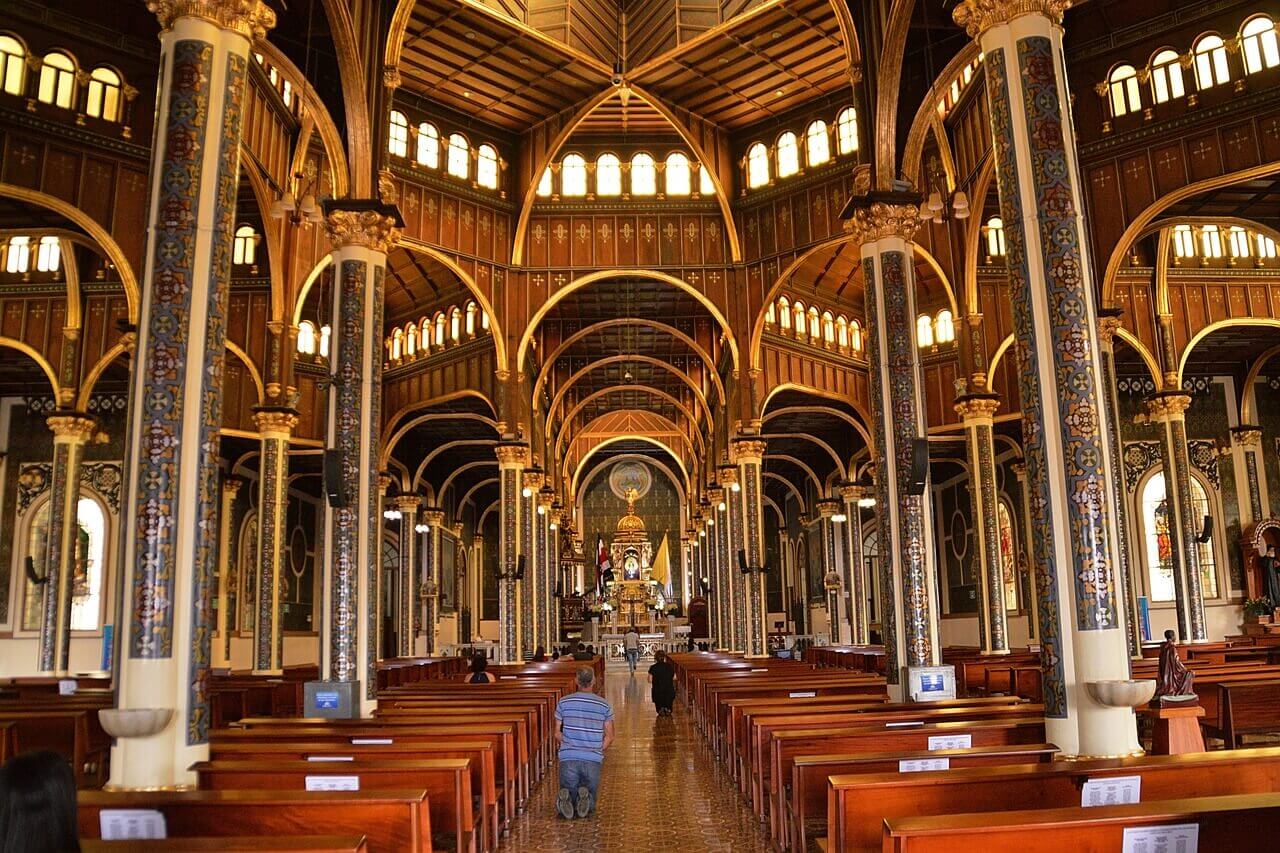
Respect the religious sentiments of locals. For example, if you’re not a Christian but standing in a church as part of a tour, then respect the surroundings and keep your calm. Dress appropriately in a temple or a mosque to respect their religious sentiments and local culture. Don’t click photos and take videos where photography and videography are banned.
And lastly, don’t drink irresponsibly. Do not create a ruckus or pick up fights with locals. Handle your drink properly and enjoy the ambience. It’s a vacation and not an “I’ll do whatever the fuck I want” pass.
6. Avoid Renting Airbnb Homes
This might piss off bloggers and people who earn a commission from Airbnb homes but who cares! Airbnb homes are a major reason why local residents aren’t able to afford good housing in their own country.
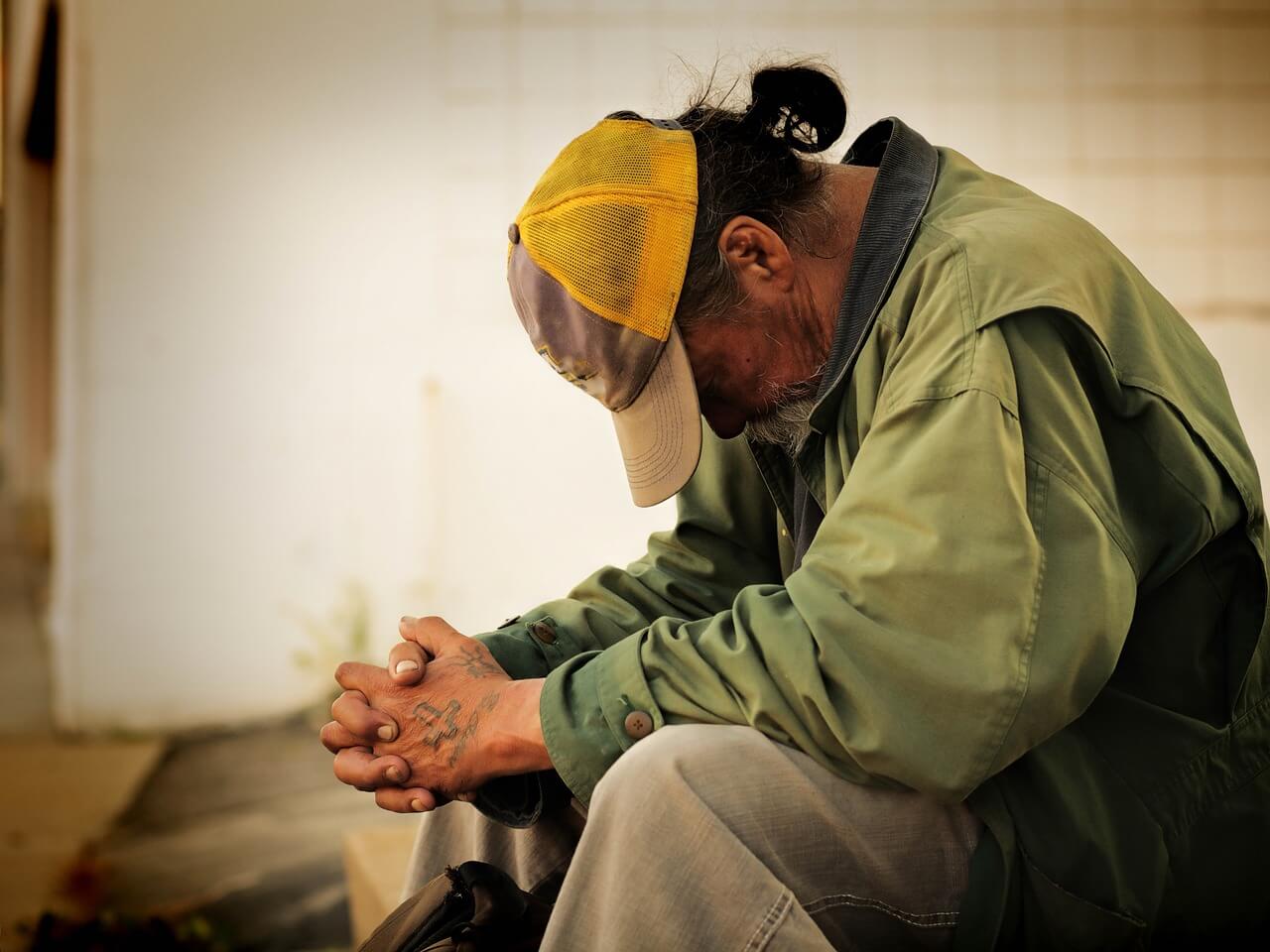
The local landlords are vacating their homes by kicking out local tenants and putting their properties up as holiday home/villa/guest house listings on Airbnb. Real estate investors are wanting a piece of the travel accommodation pie too and hence, are building holiday homes on a large scale to profit from the tourism wave. This is shrinking the housing options for local residents and they’re forced to either pay higher rents to live in their city or shift elsewhere.
People who are otherwise normally renting out their space increase their rents too in accordance with Airbnb rates and your 4-5 day cheap holiday stay leaves behind an expensive unaffordable monthly accommodation for a local. Do not contribute to this. Search for better deals on hotels by travelling during shoulder or off-season when the hotel prices are down by 30-40%.
I agree that Airbnb provides travellers with the option to “live like a local” and get a “cheaper than hotel” accommodation, but there are local options too. If you’re still pressed for budget, then try renting a room and not an entire holiday home. And don’t rent a property from a host with multiple listings.
7. Be An Aware And Informed Traveller By Preparing Beforehand

Study your destination before you land there. Read about the laws, culture, history of the place and be aware of the dos and don’ts. Don’t carry stuff that’s prohibited in that particular country. Many countries don’t allow drones in their territory. So be informed of the country-specific regulations.
By researching the places you want to visit and the ways to get there, you’ll save yourself time and stress. It’ll help you plan better as you’ll know what places are worth visiting and have something qualitative to offer. You won’t just land up at a spot for a photo and crowd the place aimlessly.
Book tour groups or day trips with companies that give back to the local community and don’t just mint money. Choose tour operators with environment-friendly and sustainable practices. Sustainable travel is one of the most effective overtourism solutions.
Conclusion
Overtourism is a phenomenon that’s slowly but surely troubling many countries across the globe. The pinch can be felt not just by the natural environments of the places but also by their local residents. The least we can do as travellers is to not add to the existing misery.
Will the overtourism solutions listed above stop overtourism completely? No.
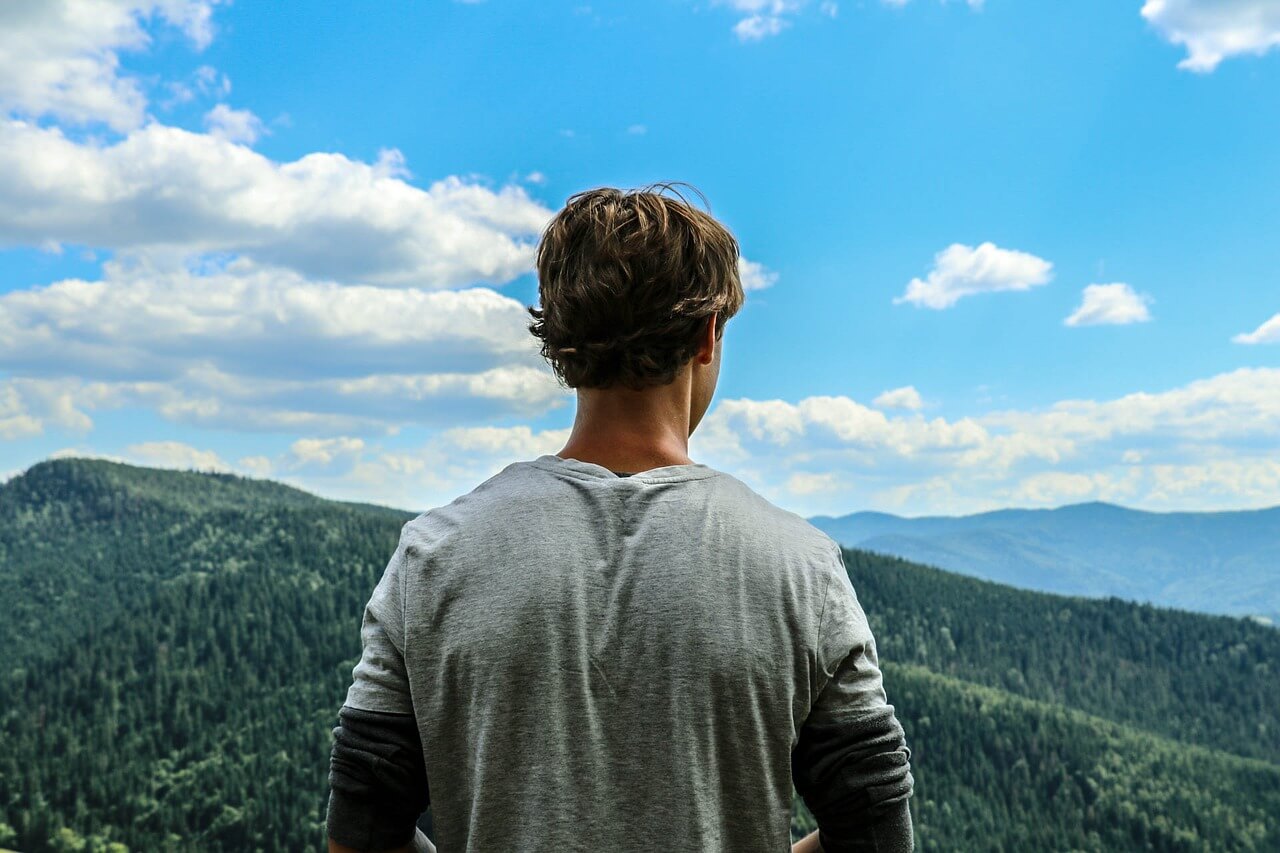
But as long as my article can create awareness and have one more aware, educated and sensitive traveller on the road, it’s a win. And with a collection of these small wins, we members of the travel community can make a huge difference in the tourism industry. So let’s do this not only for our planet but also for ourselves!
SHARE the post “Overtourism Solutions – 7 Ways To Help Solve This Worldwide Problem” on your social media channels with your family, friends, relatives, travel partners to make them aware of Overtourism and how we can help solve it.
PIN the image below to share the post “Overtourism Solutions – 7 Ways To Help Solve This Worldwide Problem” with your followers and make them aware of the situation. Also, SUBSCRIBE to “The Wandering Vegetable” for more such travel inspiration. Happy travelling!
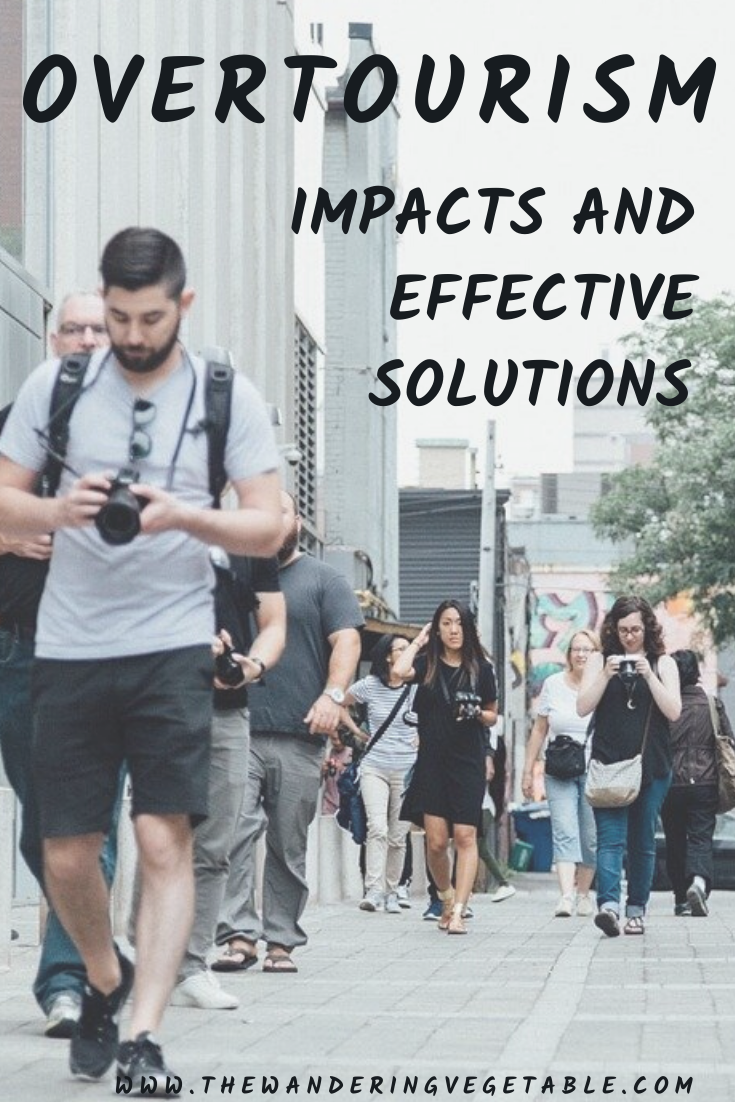

43 comments
Very insightful post bringing awareness to the downside of tourism. I’ve been a big fan of Airbnb and VRBO, but had never thought about its impact on some tenants. Love your tips regarding visiting during the off-season and supporting local businesses. I love taking walking tours with a local guide…a much more personal experience.
I myself was an ardent Airbnb fan till I saw it’s impact personally on a trip to Barcelona. Vowed to never book an Airbnb again. The season in which I book my tickets saves me my money anyway. I love an authentic non-rushed experience with a local guide as well. They’re so much more knowledgeable and take you to those hidden gems you’d have never found out on a general travel operator’s brochure.
What a great post! So informative. I hate seeing images of the trash in the oceans! There’s a lot we can do to help slow down or even halt the problems. Thanks for writing and sharing. Oceanic pollution troubles me a lot to be honest. Tourists just can’t behave irresponsibly when it comes to co-existing with nature.
I have stumbled upon overtourism in Hoi An, in Dubrovnik and in Venice. It was terrible not to be able to walk on the street because of how many tourists were there. I think another massive contributor to overtourism are the cruise ships. Think of how small Venice is… when a cruiser comes in, it floods with tourists who don’t contribute at all to the local economy because they eat and sleep on the boat.
Absolutely felt the same Joanna. And agreed with the contribution of cruise ships to the carbon footprint. Their frequencies need to be regulated if the locals are to breathe in peace and the place has t retain it’s charm else Venice will just become a thing of the past.
Very interesting take on this. Never thought of what traveling could do to a small town.
A small town can be pressurized to an extent that it doesn’t want to welcome any visitors anymore, that’s overtourism for you.
Yes! I think we all need to be respecting the environment better. It seems a lot of people treat it like a giant trash can, which is sad. I would hope when people traveled that they’d take care of the area around them.
Exactly Amber, as I’ve always believed, keep your surroundings just as clean as you’d keep your home. That’d solve half the problems arising out of overtourism.
Yes, thanks so much for this Vaibhav! I too wrote a piece on overtourism and said some people just shouldn’t travel (like the point you made with your Instagrammers). It made me feel controversial but it’s true.
Hope you are doing well. I see your blog is thriving!
Hey Lilly! I’m doing great, how are you? Lovely to see you here firstly. And yes, I’m equally if not more tired than you of the “Instagrammers” choking fun out of a heritage site or a natural wonder and converting it into a photo shoot location. I’d rather have their passports confiscated if it were up to me.
About the blog, luckily it’s picking up pace, that’s for sure (some relief for the effort)!
This is a great article. Thank you for sharing, you put into words what i’ve been trying to for awhile now. The overtourism is just starting… as populations rise and travel becomes more accessible to more people, these things will continue to get worse. NOW is the time to address the issues and prevent future damage.
Thanks for liking the article, Chelsea. And I agree that now is the opportune time to address the issue, else it’ll be too late to save the planet from the irreversible damages of overtourism.
really very interesting and timely this article. Overtourism is a bitter reality and the sooner we pull our socks up and become aware as travellers, the better it is both for us and the hosts.
Very good article, well done!
Agreed with the comment above about Hoi An and cruises. I was in Santorini in Greece and on the first day we rented a scooter to explore the island – there was no one. On the second day, we had to go into the city late morning…. WOW we got there right when a ship had disembarked it passengers…. I wanted to cry. And all these people were waiting for the sun . More than one hour before, it was impossible to find a place to sit. Very sad.
On the other hand, I’m just back from Jordan. Not currently the high season because it’s too warm for those who struggle with heat. But it was awesome! We were alone or with very few tourists in most places. My boyfrienf was making jokes that I privatised the sites for him. We also took a local taxi driver for 2 days .. and we ended up invited for a huge meal at his place. So lovely!
Now the Airbnb issue… It’s most probably not in all cases but I believe that sometimes it actually helps local people. I’ve stayed in rooms of a tour guide in Lanzarote that struggle to find enough work, of a Brazilian couple in Australia that had low paid jobs. And sometimes people do it for the fun like this lovely English couple in York that felt alone after the kids left. These people’s places were not made for a permanent roommate so I believe or at least hope they don’t have a bad impact like the terrible Barcelona situation.
Hey Emilie! Firstly congratulations on that wonderful trip to Jordan with your boyfriend. I went there during the off-season too and had an absolute blast in the country (privatized sites included). Experiences with locals have always been pleasant for me. One of them from Tbilisi, Georgia still is in touch and keeps asking me when am I sending my parents to visit the country.
I acknowledge and agree with your alternate take on the Airbnb issue. I have mentioned avoiding them in mainstream places like Barcelona because I’ve seen first-hand accounts of people not liking tourists entering their country as they feel insecure. The example of the couple in York was an interesting one and on the flip side, helps the hosts to not feel lonely and meet travellers from different countries. Anything that facilitates human interaction, helps locals and doesn’t harm anybody in the bargain is perfectly acceptable (supplementing incomes from Airbnb’s due to low paying jobs included).
Also, what’s your next travel destination?
This is such a great post! I love getting out of the ‘tourist trap’ and getting to know the locals and their way of living when I visit somewhere. I would much rather support their local businesses and get ‘off the beaten path’ to really experience life in another country than simply take in the same views that you’ve seen a million times online simply because Instagram says it’s the ‘must see’ spot, where you’re likely elbow to elbow with a dozen other people all taking the same photo!
I know right Britt? What’s the point in merely creating the same clicks with the same angles at a beautiful place. The whole point of travel gets lost in vanity. Good on you, glad to see another responsible traveller who travels for the right reasons and stays away from the social media trap.
As someone who loves to travel I learned so much from this post. I never even thought about the impact of Airbnb’s that would have on locals in these high tourist destinations!
Well, now you do Lisa. And I’m glad the article helped you. Awareness is the key to solving a problem like overtourism.
Your analysis and your solutions are very interesting. Doing tourism is beautiful but rightly as you are pointing out in recent years this has greatly affected the “health” of many places.
Great tips about avoiding overcrowding. I do enjoy visiting a location during off-peak times as well as living like a local when I get there. I do have to disagree with you when it comes to using Airbnb. Not all places are affected negatively by Airbnb so my advice is that you think of the positive effects of Airbnb on places or towns that never had sufficient accommodation due to a shortage of hotels or infrastructure. Family reunions if planned properly will not need to have hosts sleeping rough while their guests are comfortable.
Hey Alvern! Glad you liked the tips. Regarding Airbnb’s, I’ve mentioned that not all, but some destinations are facing issues because of the website for example Barcelona. Infact, I’ve suggested avoiding Airbnb properties that are listed under the same owner and choosing independent ones as that helps a local in need.
Regarding the family reunion, that was a childhood episode seen from a humorous lens. Trust me, the hosts slept like babies on comfortable mattresses with cosy blankets and the star-filled night sky. In some instances, I even chose to sleep on the terrace myself because it was really fun!
Nnniiicceeeee, Vaibhav….so many of us do over-tour without even realising that we are being a “nuisance” than a blessing!
Great article showing the flip side. I agree on shopping local when traveling and supporting the places that make you happy
Thank you Kelli, appreciate it!
These are on point! We all have to be responsible tourists. I also like to travel during off peak season so that I could take in the local feels of the country I’m visiting.
Plus it helps that the hotels and flights are much cheaper in the off-peak season!
I’m not the biggest traveller, though I have friends who are. For me, the desire to visit a place is more personal, than just because everyone else is doing it. Regardless, I do think it is important to be respectful of the places you visit and not overcrowd, act rude, or leave your trash every where. Would you want someone do that it your home or city?
As they say, Cindy – ” Do unto others as you would have them do unto you”. The golden principle of life that keeps everything in the right place.
I think it is really sad what overtourism has done to such beautiful places . I think so many people get caught in the social media trap of traveling and don’t really even do it for the joy of travel. I prefer to travel during off seasons myself and really I love to travel local and explore places within driving distance of me.
That’s lovely Jessica. Glad to find an educated, sensitive and well-informed traveller in the community.
This post is excellent and opening our eyes as tourists.Yes,overtourism is a major issue.I didn’t have any idea about AirBnb and its effects to the locals.Glad you shared.
You’re welcome Amila. I too didn’t know much about the issue till I visited Barcelona and saw the damage inflicted by Airbnb on the local Spanish community’s housing facilities.
Oh man, I never really thought about this but it’s all so true and kind of scary. Thanks for the hefty reminder.
Thankfully, in this case, it’s not too late to implement these solutions YET. And you’re welcome Krysten!
Thanks . Agree with all the points. If you are visiting any destination. You need to respect that place too and need to understand their problems too. So many times when we visit we don’t even think twice how our actions can impact the environment.
That’s why awareness, education and being informed helps not just you as the tourist but them as the host nation as well. We got to be sensitive to foreign environments else the day’s not far when countries will actually ban entries of tourists into their territories.
Exactly you are very much too the point here. Over tourism solutions are very good too. Hopefully if everyone would understand.
Solutions 2, 3, and 4 can be enacted immediately. I never understood people paying more and dealing with larger crowds so they can travel during peak season.
I know Brian. It’s a no-brainer but then with people, you never know!
Firstly, respecting the environment may mean finding a less-visited alternative to a popular attraction. The overwhelming influx of visitors to Iceland in recent years resulted in many popular photo spots like Reykjadalur being closed off to tourists for months. Delicate ecosystems have come under strain from too much tourist love (and disobeying signage), and nature needs time to recover before the damage becomes irreversible. Furthermore, Maya Bay in Thailand (more popularly known as James Bond Island) has recently been closed to allow time to heal and recover from unsustainable visitor numbers. While this may seem like an inconvenience if you were planning to go, it’s important to remember that this action will help save these environments and allow them to be around for future generations.
Absolutely agree with you Sebastian. Experienced the Maya Bay shutdown first-hand myself and didn’t mind it because I understand that nature needs it’s due time to repair and replenish itself.